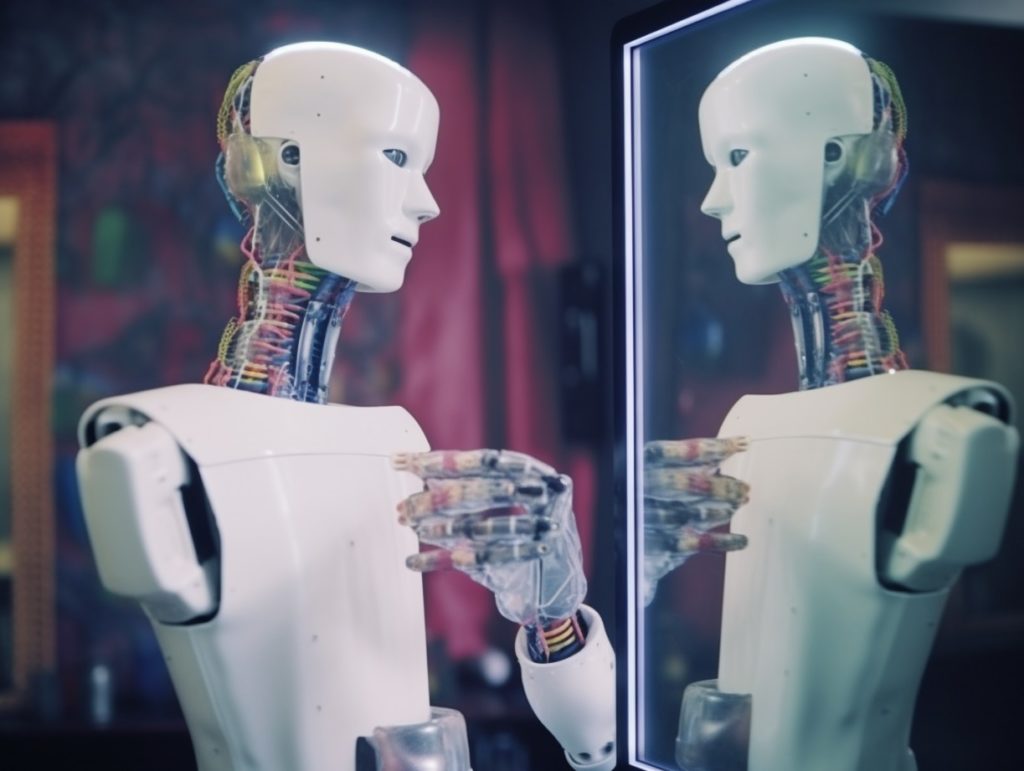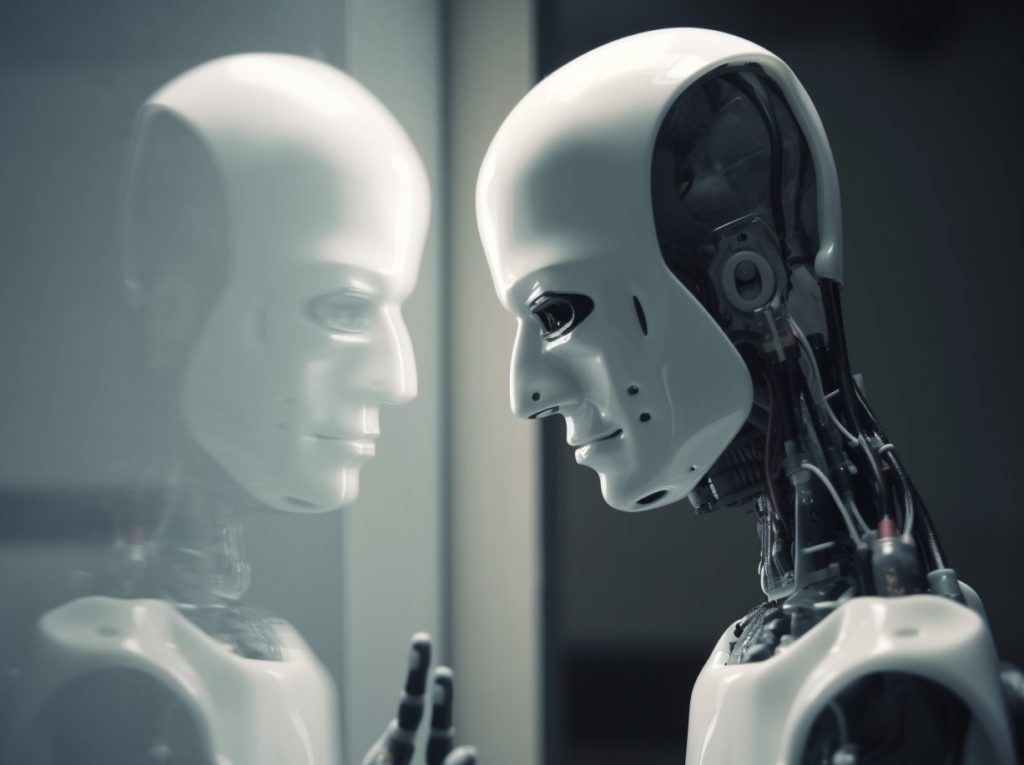
The mirror test is way to measure self-awareness. The test is a behavioral experiment developed by psychologist Gordon Gallup Jr. in 1970. The test was designed to assess self-awareness in animals by examining their ability to recognize themselves in a mirror. Only a few species (humans, great apes, dolphins, elephants, and some birds) have passed the test. Will AI entities be next?
Some prominent scientists and industrial leaders have recently expressed their fears of machine learning technology. One view is that a highly intelligent entity, presumably a self-aware AI system, could somehow use its newfound consciousness to destabilize or even destroy human society.
How Rational are AI Fears in 2023?
Let’s reflect on the internet craze of the late 1990s and its associated social anxiety. Many people struggled to understand the power of this new technology. That misunderstanding was often projected into irrational fears, novel types of anti-intellectual gatekeeping, and even a false Y2K doomsday prediction that drove major consumer panic & stockpiling of necessities.
In hindsight, it’s easy to chuckle at the media fueled Y2K paranoia. Some people truly suffered from that anxiety at the time. It was unnecessary and unfortunate.
When you see people promoting a climate of fear about the scary science fiction potential of AI, please recall how easily popular media can be used to lead us into a smoky hall of darkly dystopic mirrors. It’s not a new thing.
Technology Makes Our Lives Better
Nearly a decade ago, cognitive scientist Daniel Dennett predicted the anxiety you see today. In a 2014 interview with the Guardian, Dennett dryly observed:
“People worry about robots taking over the world, but I say: if we’re so stupid that we invent a superior species that takes over the world, we deserve to be replaced. But I don’t think it’s going to happen, because we tend to find ways of using these things to make our lives better rather than worse.”
We take the internet for granted today, but that hasn’t always been the case. Some argued against the rise of social networking by drawing attention to the concurrent rise in antisocial networking, computer crime, cyberbullying, etc. Those arguments mostly fell on deaf ears because the transformational power of networked computing was too attractive.
The same will happen with AI. It’s strangely fashionable to worry about it now, and people will play that game as long as it allows them to posture as morally superior or technologically responsible. Fair enough. It won’t be long until society takes machine learning for granted, too.
Some people will use it for evil – I’m sure they already do. That’s human nature, sadly. But it’s also human nature to advance as a species and we’ve done an amazing job over the past century. We will use AI to improve quality of life, healthcare, and education for many people around the globe. That will more than offset the risks.

